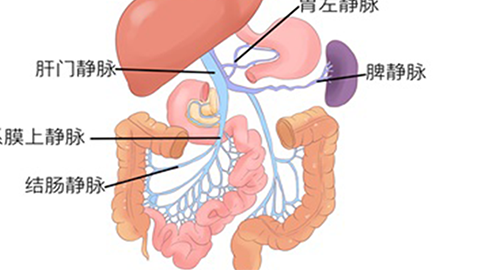What should be done when a tumor causes intestinal obstruction?
In general, the main treatment methods for tumor-induced intestinal obstruction include basic supportive therapy, drug therapy, surgical treatment, tumor-targeted therapy, and traditional Chinese medicine (TCM) therapy. A detailed analysis is as follows:

1. Basic Supportive Therapy
The core of treatment is to relieve intestinal burden and maintain bodily balance. Oral intake should be stopped immediately, and gastrointestinal decompression tubes are used to remove contents from the stomach and intestines to reduce abdominal distension and pain. At the same time, intravenous infusion of normal saline and glucose solution is administered to replenish fluids and energy. Electrolyte levels should be monitored closely, with prompt correction of imbalances such as hypokalemia and hyponatremia.
2. Drug Therapy
This primarily aims to relieve symptoms and provide adjunctive treatment. For significant abdominal pain, medications such as pethidine hydrochloride injection or sustained-release morphine sulfate tablets may be used under medical guidance. For abnormal intestinal motility, cisapride tablets can be prescribed to enhance gastrointestinal motility. To prevent infection, ceftriaxone sodium injection may be selected.
3. Surgical Treatment
The goal is to relieve the obstruction and address the tumor. Common procedures include adhesiolysis to relieve tumor compression; when the tumor is localized, tumor resection combined with bowel anastomosis may be performed; for advanced cases where tumor removal is not feasible, colostomy or ileostomy may be conducted to create a temporary defecation pathway, thereby improving quality of life.
4. Tumor-Targeted Therapy
This approach controls disease progression at the root cause. For patients with malignant tumors, chemotherapy may be selected based on individual conditions, using common agents such as fluorouracil injection, capecitabine tablets, and oxaliplatin injection. Some patients may benefit from radiotherapy to shrink tumor size and alleviate the degree of intestinal obstruction.
5. Traditional Chinese Medicine (TCM) Therapy
According to TCM theory, intestinal obstruction is often associated with stagnation of qi and excess in the fu-organs. Treatment focuses on purging the bowels and regulating qi flow. Herbal formulas such as Da Cheng Qi Tang (Major Chexy Decoction) or Wen Pi Tang (Warm the Spleen Decoction) may be used. Acupuncture at points such as Zusanli (ST36) and Tianshu (ST25) can also help regulate intestinal function and assist in relieving symptoms like bloating and constipation.
In addition, during treatment, patients must strictly follow medical advice and undergo regular follow-up evaluations. If symptoms such as high fever or worsening severe abdominal pain occur, they should immediately inform their doctor so that the treatment plan can be adjusted promptly.





